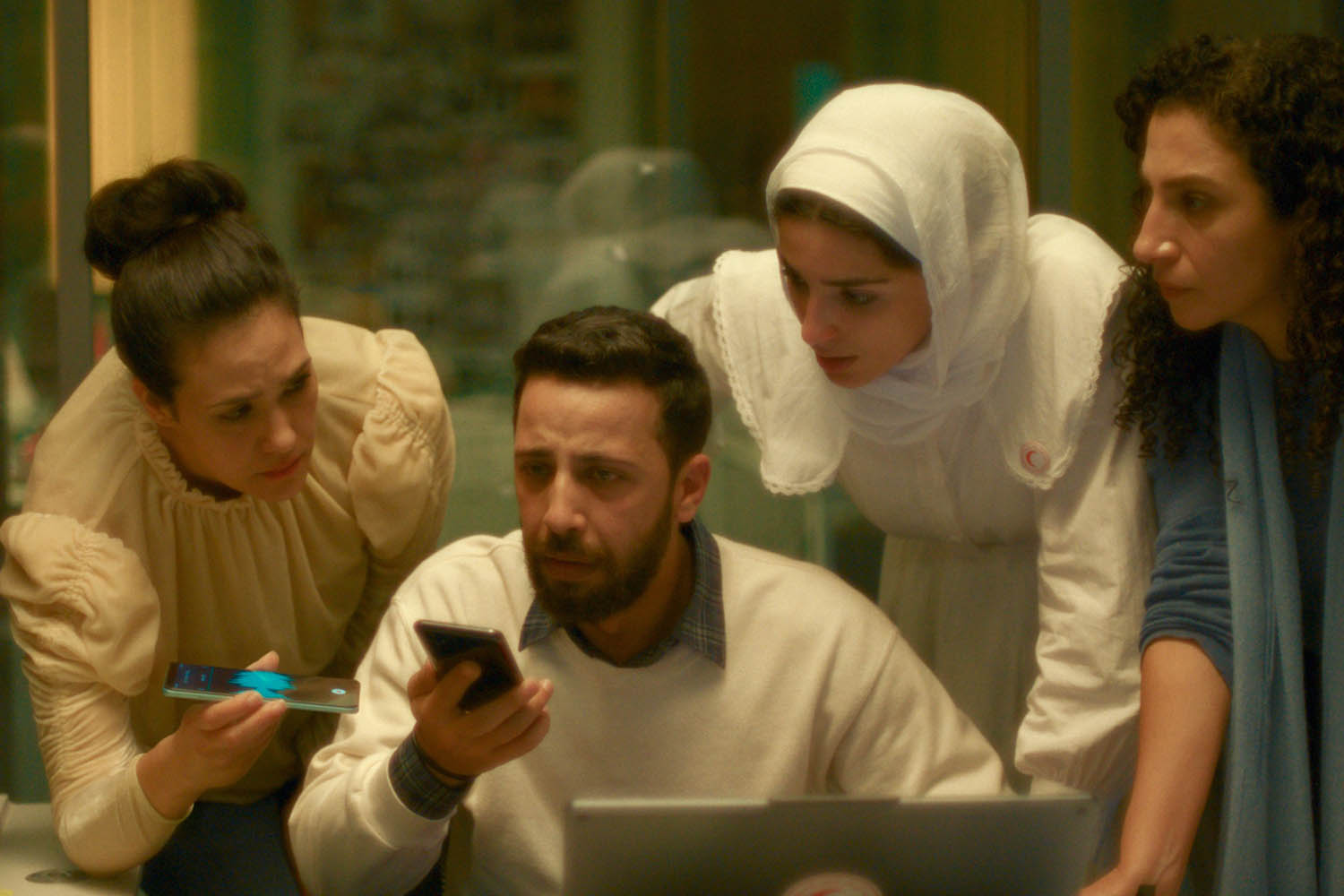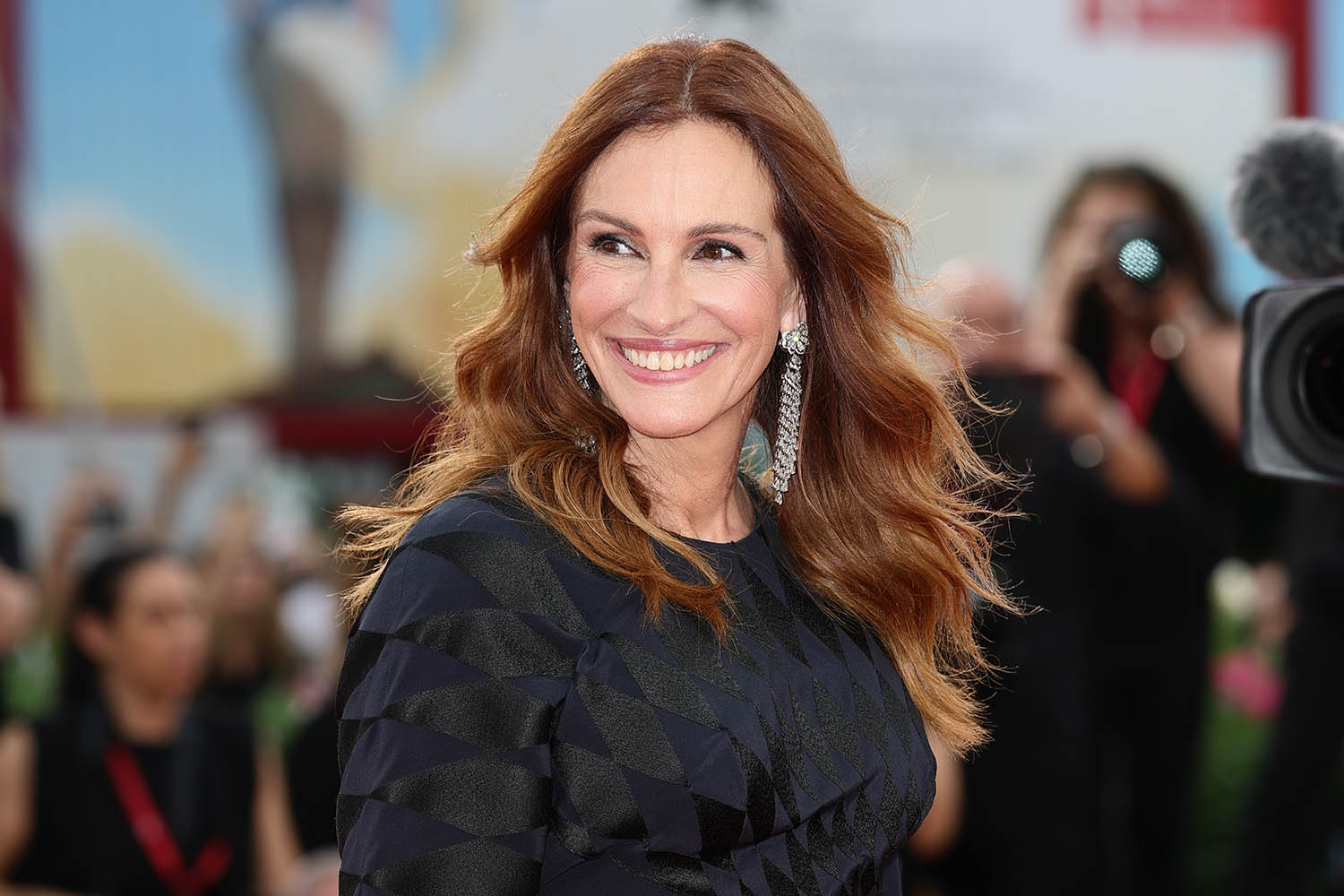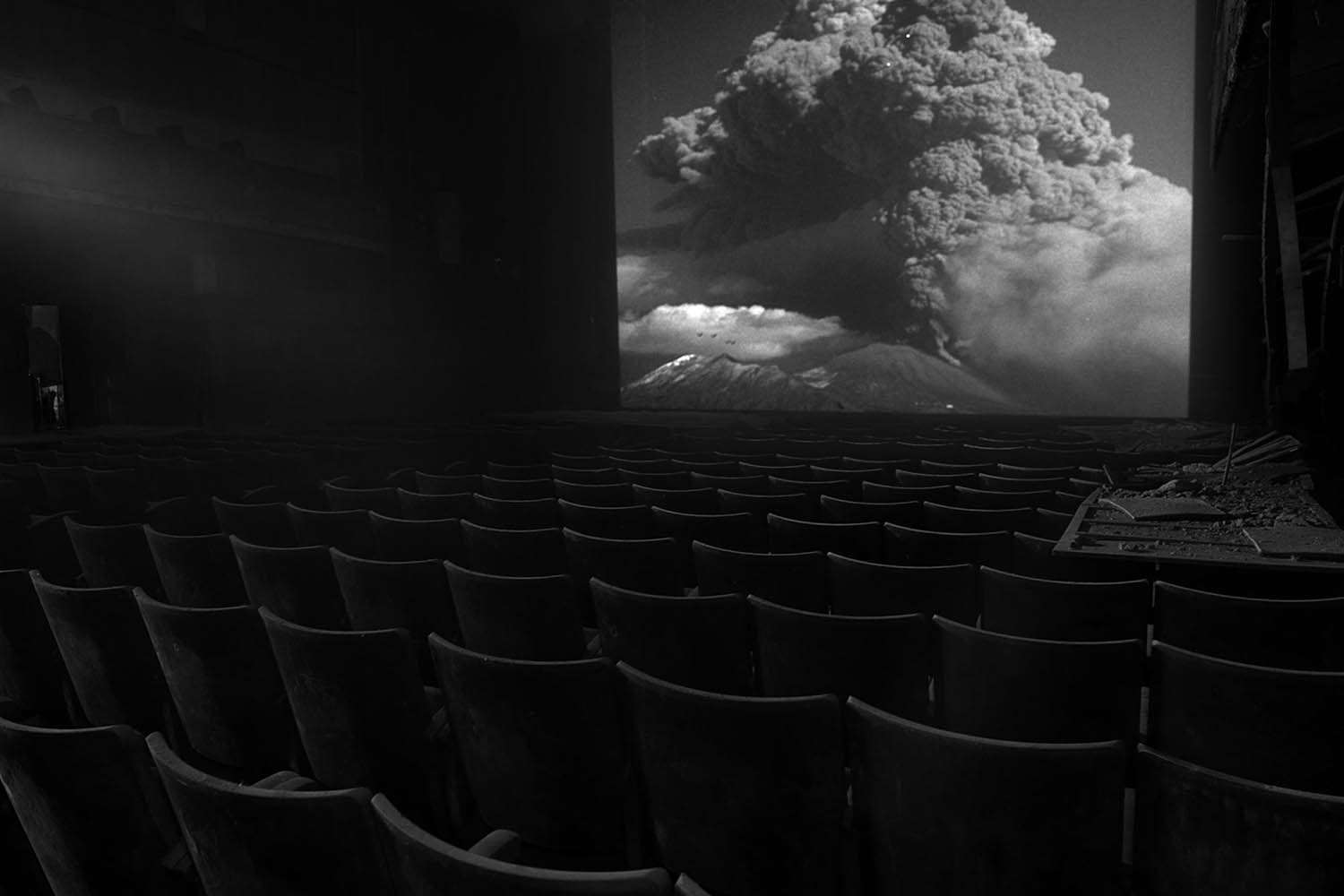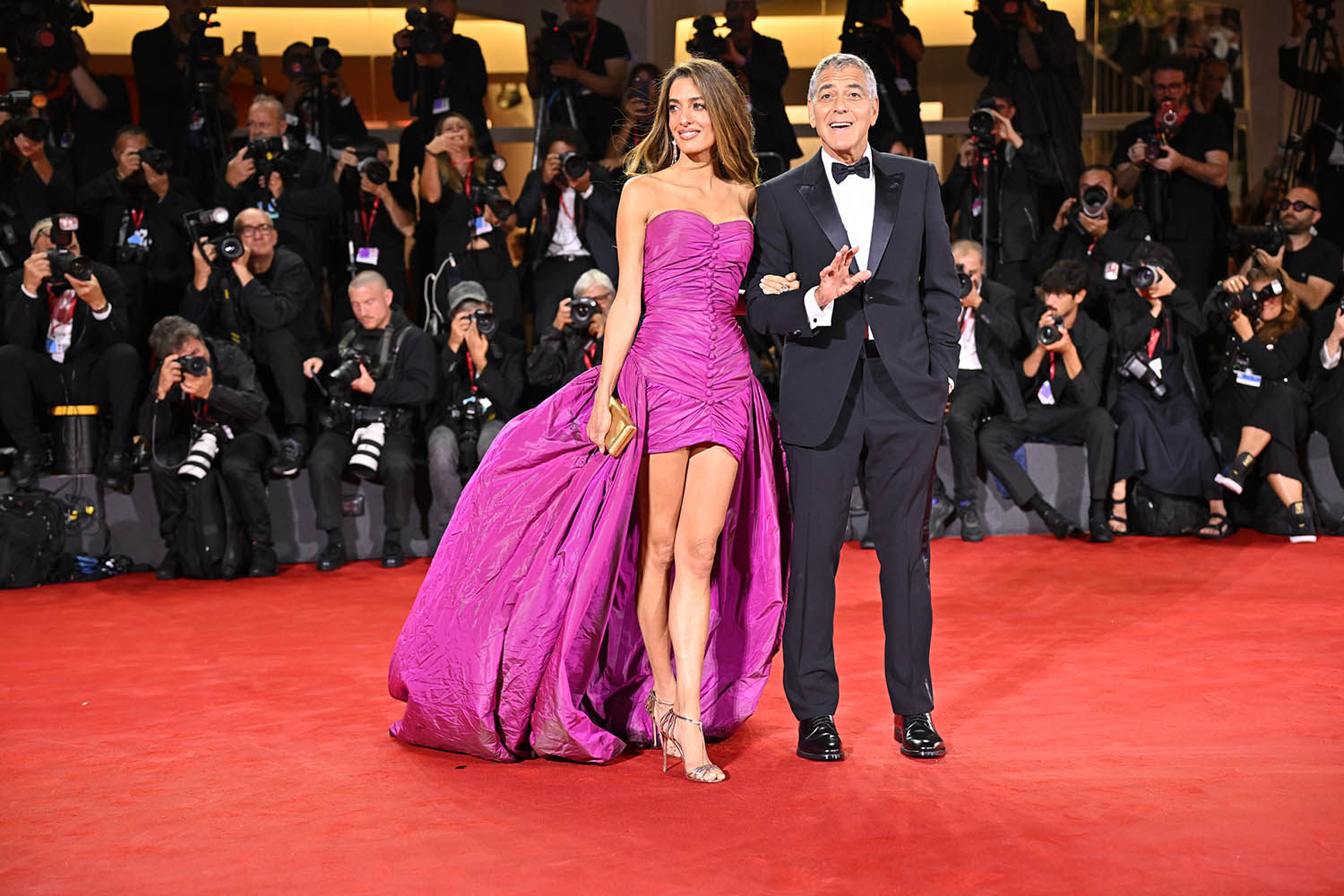The European festival circuit is a complex thing, so it would be grossly reductive to see it simply as a contest between Venice and Cannes. Nevertheless, when it comes to A-list prestige and launching the heavyweight titles of the awards season, these are the main platforms – and for several years, Venice has had the edge, showcasing films such as Nomadland, The Favourite, Marriage Story and The Brutalist. This year, the festival is pushing the gondola out for the red-carpet factor, its official selection studded with names like Julia Roberts, George Clooney, Emma Stone, Cate Blanchett, Tilda Swinton, Oscar Isaac et al. Notice anything here? Yes, there is a distinct skew towards Anglo-American star power, and while the selection features some major world-cinema auteurs, many are working in English (Guillermo del Toro, Luca Guadagnino, Yorgos Lanthimos, Olivier Assayas).
What’s extraordinary also is how many film-makers are relying on the word as much as the image. Assayas’s The Wizard of the Kremlin, a high-gloss fictionalised depiction of Red Square chicanery, had Paul Dano heading a cast, including a tetchily effective Jude Law as Putin, engaged in lengthy passages of politico-strategic debate. Luca Guadagnino’s After the Hunt, starring an imposingly chilly Julia Roberts, was a stiff, painfully prolix culture wars debate. And the bizarre, hyper-earnest sort-of musical The Testament of Ann Lee, by Brutalist co-writer Mona Fastvold – with Amanda Seyfried as the 18th-century religious leader – featured swathes, spoken and sung, of Shaker doctrine.
So it came as a blessed relief to enjoy occasional silences. They were savoured in Jim Jarmusch’s Father Mother Sister Brother, a sour-sweet triptych of familial vignettes. In the first two stories, the pauses are altogether Pinteresque, as parents (Tom Waits, Charlotte Rampling) and offspring (Adam Driver and Mayim Bialik; Cate Blanchett and Vicky Krieps) fail to connect, while in the third, bereaved twins (Indya Moore, Luka Sabbat) share a bond that doesn’t always require words.

Kaouther Ben Hania’s ‘gripping, distressing’ The Voice of Hind Rajab, a Golden Lion frontrunner
By contrast, words are weapons in Yorgos Lanthimos’s Bugonia in which a voluble conspiracy theorist (Jesse Plemons) kidnaps a pharma CEO (Emma Stone), convinced that she’s an evil alien. Both actors are brilliant in this blackly farcical huis clos – but there’s something joyless and manipulative about Lanthimos’s fastidious theatre of cruelty. In a similar vein, the Korean auteur Park Chan-wook offered No Other Choice, a comedy thriller about a jobless man who sets out to eliminate his work rivals. The film was a huge, cumbersome machine grinding through its macabre set-ups.
One movie, though, used dark content to brilliant effect: Dead Man’s Wire, a surprise comeback from the US indie veteran Gus Van Sant. It recounts true events in 1977, when an embittered loner kidnapped a mortgage company executive. Amid the tension and uneasy comedy, Van Sant makes us feel both for the hostage (Dacre Montgomery) and his captor (a genuinely alarming Bill Skarsgård). He also beautifully pastiches the style of 1970s Hollywood thrillers, with a strong flavour of Dog Day Afternoon – hence a very ripe Al Pacino cameo.
There was other backward-looking entertainment on offer: Noah Baumbach’s meta Hollywood comedy Jay Kelly was patchily enjoyable, with George Clooney gamely playing a worst-case version of himself. And for sheer operatic bluster, there was Del Toro’s Frankenstein, which returned to the story’s Romantic roots: a vast, windswept extravaganza in which Isaac goes full-on Byronic as he stitches together an oddly balletic Jacob Elordi.
Venice’s most sheerly beautiful film was Below the Clouds –also the most symbolic title, given the week’s torrential downpours
Venice’s most sheerly beautiful film was Below the Clouds –also the most symbolic title, given the week’s torrential downpours
Venice’s most sheerly beautiful film was the Italian documentary Below the Clouds (also the festival’s most symbolic title, given the week’s torrential downpours). Directed by Gianfranco Rosi, who won the top Golden Lion prize for 2013’s Sacro GRA, it’s a poetic panorama of Naples, a city forever living in the shadow of Vesuvius. Rosi’s mosaic includes archaeologists unearthing Roman artefacts, police hunting tomb robbers, the fire service switchboard taking anxious calls about earth tremors and domestic disruptions. Shot in gorgeously textured black and white, it’s a film of phenomenal resonance and empathy.
Another standout came from László Némes, who made the devastating, somewhat experimental Holocaust drama Son of Saul. His Orphan is surprisingly retro in its echoing of old-school eastern European realism but is a very involving depiction of 1950s Hungary in which a teenager confronts the mystery of his origins amid the turmoil of a newly transformed nation.
Amid a strong British showing, the Cornish director Mark Jenkin (of 2019’s Bait) applied his distinctive DIY approach to a trick-box of a tale in Rose of Nevada, with George MacKay and Callum Turner as two men who join a fishing crew for an eerie Flying Dutchman sort of trip. It is simple, but executed with ingenuity, grit and a potent streak of hard-times social commentary.
MacKay also features in Iain Forsyth and Jane Pollard’s Broken English, a portrait of Marianne Faithfull, who was interviewed shortly before her death. Her story and her buoyantly no-nonsense personality are as captivating as you’d expect, although the bizarrely elaborate framing material (Swinton representing the “Ministry of Not Forgetting”) are a touch distracting. But Faithfull’s songs, and the versions by, among others, Beth Orton and Nick Cave, are mesmerising.

Julia Roberts on the red carpet
Then there was Ish, a drama set among Luton’s Muslim community by first-timer Imran Perretta, about two boys who fall out after a police stop and search. With echoes both of Kes and La Haine, and like the latter starkly shot in black and white, it uses its young non-professional cast to crackling effect. It is also arguably the first British fiction film made against the backdrop of the war in Gaza.
Which brings us to The Voice of Hind Rajab, by the Tunisian director Kaouther Ben Hania). This is a dramatised account of real events that took place early last year, when an emergency centre in the West Bank received a call from a distressed six-year-old girl alone in a car in Gaza, her family members dead around her. Crafting an impression of real time, the film shows Red Crescent workers struggling with the complex protocols of sending help. Giving a distinct – and potentially controversial – edge to the race-against-time drama, Ben Hania uses actual voice recordings of the girl. It is gripping, distressing and all the more unsettling given how much worse the situation there has become since these events. The film is clearly a frontrunner for the Golden Lion.
Equally, don’t rule out Kathryn Bigelow’s A House of Dynamite – a vividly mounted doomsday nail-biter in which White House officials face the prospect of a mystery nuclear missile heading for the US. A terrific cast including Rebecca Ferguson, Idris Elba and Greta Lee furrow their brows over computer screens and shout down phone lines, but the material is made vivid and dynamic by the density of detail, and by Noah Oppenheim’s intricate, ingenious script, composed of overlapping chapters.
Appearing late in the game is a US president imposingly played by Elba as a decent, competent professional who is nevertheless way out of his depth. When you see him stymied on being handed a hefty doomsday manual and told that it’s decision time, you daren’t imagine the equivalent real-world situation. A House of Dynamite is firing-on-all-barrels mainstream entertainment, but intensely provocative all the same. For sheer narrative pleasure it’s the Biennale’s out-and-out blast.
Picks from the 82nd Venice film festival

Best dramas
The Voice of Hind Rajab; A House of Dynamite; Dead Man’s Wire
Best documentaries
Below the Clouds; Cover-Up (Laura Poitras, Mark Obenhaus), a portrait of veteran US investigative journalist Seymour Hersh; and Remake, a moving essay in which American documentarist Ross McElwee, who for decades has filmed his own life, considers the death of his son Adrian at age 27.
Best adaptations
L’Étranger, François Ozon’s elegant take on the Albert Camus classic; and Kent Jones’s Late Fame, scripted by Samy Burch from an Arthur Schnitzler story. Updated to contemporary Manhattan, it stars Willem Dafoe as a 70s downtown poet rediscovered by neo-bohemians. It is richly funny and painful in turns.
Best performances
Bill Skarsgård in Dead Man’s Wire; Emma Stone and Jesse Plemons in Bugonia; Willem Dafoe and Greta Lee in Late Fame; the ensemble casts of The Voice of Hind Rajab and Father Mother Sister Brother.
Best music
Ambient/jazz harpist Nala Sinephro’s score for Benny Safdie’s wrestling drama The Smashing Machine; Greta Lee’s rendition of Brecht and Weill’s Surabaya Johnny in Late Fame.
Best Werner Herzog one-liner
From his otherwise so-so African documentary Ghost Elephants: “Surrounded by chickens... it can’t get better than this.”
Newsletters
Choose the newsletters you want to receive
View more
For information about how The Observer protects your data, read our Privacy Policy
Photographs by Getty Images
